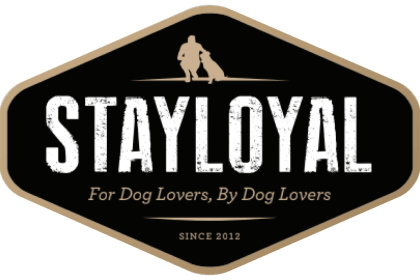Understanding All Life Stage Dog Food: What Does It Really Mean?

When it comes to feeding your dog, you may have come across the term "All Life Stage" on pet food labels. But what exactly does it mean? Essentially, All Life Stage products are formulated to meet the nutritional guidelines established by organisations like AAFCO (Association of American Feed Control Officials) or FEDIAF (European Pet Food Industry Federation) for both growth and maintenance life stages. This means that these products are suitable for both puppies and adult dogs.
Key Nutritional Differences Between Puppies and Adult Dogs
Puppies and adult dogs have different nutritional needs, and understanding these differences is crucial for their health. For starters, puppies require more protein and fat than adult dogs to support their rapid growth. They also need higher levels of specific amino acids and fatty acids. For example, alpha-linoleic acid, eicosapentaenoic acid (EPA), and docosahexaenoic acid (DHA) are essential for puppies. While these nutrients are beneficial to adult dogs and may assist with managing inflammation, maintaining cognitive function and supporting gut health to name a few, under AAFCO, there is not a requirement for the inclusion of ALA, EPA & DHA so they may not be included in adult formulations at all.
Minerals are another area where puppies have higher requirements than adults. Growing puppies need significantly more calcium, phosphorus, iron, zinc, copper, and manganese. Whilst all these minerals have important roles. Zinc is particularly worth mentioning due to importance for immune system development and skin and coat health. Adult dogs and senior dogs also benefit from extra zinc, especially when under stress such as illness. Minerals do have to be carefully balanced though to ensure that excess of one mineral doesn’t compromise the absorption of another.
This is particularly true for calcium and phosphorous. Excessive calcium and phosphorus or an improper calcium-to-phosphorus ratio can lead to serious health issues, especially in large breed puppies. It's essential to manage these minerals carefully. Luckily, it seems less of an issue for adult dogs, although imbalances and excesses can lead to other issues.
When it comes to vitamins, there are no significant differences in the minimum requirements between puppies and adult dogs. However, puppy formulations often include slightly higher levels of vitamins A, D, E, and B vitamins, including folic acid.
What About Adult Dogs?
Many adult dogs and senior dogs can also benefit from the additional nutrients provided by All Life Stage products. These diets are often more nutrient-dense, meaning they provide more nutrients per calorie compared to standard adult dog food. This generally means more protein and sometimes more or less fat depending on whether it is targeted to large breeds. The increased levels of EPA and DHA in All Life Stage formulations can be particularly beneficial for adult and senior dogs, supporting brain, neural, and gut health, and helping manage inflammation.
Additionally, higher levels of zinc in these diets support immune health which is great for all dogs and the increased amino acids typically found in All Life Stage diets can help meet the specific amino acid needs of different breeds something that is not recognised under AAFCO guidelines.
So, can my puppy adult and senior dog all have the same diet?
For many puppy adult dogs and senior dogs, an All Life Stage diet is an excellent choice unless your pet has a specific condition that requires a specialised therapeutic diet. The benefits of higher protein, additional essential fatty acids like ALA, EPA & DHA and elevated key minerals like zinc are not only something strictly reserved for puppies. Adult dogs and senior dogs absolutely do benefit from these additional nutrients when delivered in a balanced format such as an All Life Stage formulation.
As always, monitor your dog’s health closely, watch for any weight changes, and consult your vet if you notice any issues.








